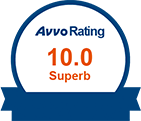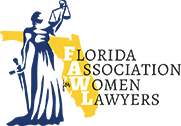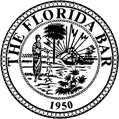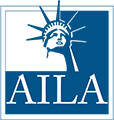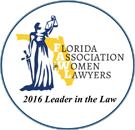Jacksonville Work Visa Attorney
Dedicated Legal Help for Business & Employment Visas: (904) 296-9232
Individuals from foreign countries can be employed in the U.S. on a temporary or permanent basis by small businesses, corporations, universities, hospitals, sports facilities, entertainment industries, and other professional groups. This usually begins with sponsorship by a U.S. employer.
At our law firm, we handle a variety of work visas for a wide variety of organizations, from small startups and entertainment groups to religious organizations and major corporations since 2006. Work directly with a Jacksonville work visa lawyer to ensure that the process for your group is accurately and responsibly prepared, documented, and followed up. Contact Ms. Fakhre today for a consultation about your Florida work visa case.
Why Choose the Law Office of Joanne M. Fakhre,?
- Customized Approach to Every Immigration Case
- Strong Testimonials from Previous Clients
- Direct Available to You Throughout Your Case
- Perfect 10.0 Rating of Superb from Avvo
Trust your employment-based work visa to the Law Office of Joanne M. Fakhre. Call (904) 296-9232 today. Our Jacksonville work visa lawyer can consult with you either in person, over the phone, or via Skype.
What Is The Difference Between Nonimmigrant and Immigrant Work Visa?
An immigrant work visa and a nonimmigrant work visa are both categories that allow individuals to work legally in the United States, but they differ in terms of intent, duration, and eligibility for permanent residency.
What is an Employment Visa?
An employment visa in the USA is a type of visa that allows a foreign national to work in the United States for a specified period of time. These visas are usually issued by the US Department of State and can be obtained through an employer or directly from the government.
Depending on the type of visa, foreign nationals may be able to obtain permanent residence or may need to renew their employment visa every year. An employer must demonstrate that they are unable to find a suitable American worker to fill the position, and that hiring a foreign national will not have an adverse effect on the US labor market before a visa can be approved. It is important for employers and foreign nationals alike to understand all applicable laws in order to comply with necessary requirements.
Nonimmigrant or Temporary Work Visas
There are many different employment-based nonimmigrant visa categories that allow employers to hire and petition for foreign nationals to work in specific jobs for a limited or specific period of time, depending on the visa category. These visas typically do not lead directly to permanent residency (a green card), although some may offer the option to apply for one.
Other nonimmigrant visa categories, such as the E2 investment visa, allow the foreign national to invest in a business in the United States.
Examples of common temporary work visas include:
- B-1: for temporary business visitors
- E-1: Treaty Traders
- E-2: Treaty Investor
- E-3: Certain Specialty Occupational Professionals from Australia
- H1-B: Professional Worker Specialty Occupations
- L-1: for intracompany transferees
- L1-A: Executives or Managers
- L1-B: Specialized Worker
- O-1: for workers with extraordinary abilities
- O-1A: Individuals with Extraordinary Ability in the Sciences, Education, Business, or Athletics
- O-1B: Individuals with Extraordinary Ability in the Arts or in the Motion Picture or Television Industry
- P-1: those working in the entertainment industry or within athletic groups
- P-1A: Members of an Athletic Team or Internationally Recognized Athlete
- P-1B: Members of an Internationally Recognized Entertainment Group
- P-2: Individual Performer or Part of a Group Entering to Perform on a Reciprocal Exchange Program
- P-3: Artist or Entertainer Coming to Be Part of a Culturally Unique Program
- Q-1: Cultural Exchange Visitor
- R-1: Temporary Nonimmigrant Religious Workers
- TN / NAFTA: Canadians or Mexicans Who Work in Certain Occupations as Part of the NAFTA Treaty
Should your employment-based visa not fall into the above categories, let Ms. Fakhre provide you with the appropriate legal options available to you to resolve your matter. Our employment visa attorney can help you every step of the way.
What Is The B-1 Visa?
A B-1 visa is a temporary business visa that allows individuals to visit the United States for short periods of time for business-related purposes. It is specifically designed for those seeking to engage in a range of business activities, such as attending meetings, conferences, negotiations, or participating in professional events.
Applying for a B-1 visa involves submitting a detailed application and attending a visa interview at a U.S. embassy or consulate. To ensure that you are eligible for this visa and there are no delays in your application, be sure to speak with a skilled Jacksonville business visa lawyer at The Law Office of Joanne M. Fakhre, P.A..
What Is The O-1 Visa?
The O-1 visa is a temporary work visa designed for individuals with extraordinary abilities or achievements in specific fields. It allows foreign nationals with exceptional skills in sciences, education, business, athletics (O-1A), or extraordinary achievement in arts, entertainment, or media (O-1B) to work temporarily in the United States.
The visa allows "dual intent," enabling holders to pursue both temporary work and future permanent residency.
Key features include:
- Sponsorship by a U.S. employer or agent
- Temporary stay for up to 3 years initially with possible extensions
- Absence of a numerical cap on visa issuance
The O-1 visa application involves a comprehensive petition with evidence of extraordinary ability. Due to its intricacies, many applicants may seek assistance from an experienced O visa attorney or temporary work visa attorney to navigate the process successfully.
Immigrant or Permanent Work Visas
An immigrant work visa is part of the path to permanent residency in the U.S. It is designed for individuals who intend to live and work in the country on a long-term basis. A foreign national can become a legal permanent resident based on a self-petition Employment or Investment. Self-petitions are available to individuals with extraordinary ability or those who have been granted a National Interest Waiver. Our employment visa lawyer can help you navigate your petition to secure your future.
Immigrant work visas, such as the employment-based EB-2 and EB-3 categories, require sponsorship by a U.S. employer and usually involve a multi-step process. They often lead to a green card, which grants the holder permanent residency status and the ability to live and work in the U.S. indefinitely.
Each type of visa has its own eligibility criteria, application process, and benefits, so it's crucial to carefully consider your goals and circumstances when choosing the appropriate visa category. Consulting with an Jacksonville work visa attorney can help you navigate the complexities of these visa options and make informed decisions based on your individual situation.
Below are the various options for applying for a green card through employment:
- EB–1 Extraordinary Ability EB–1(A), Outstanding Professors and Researchers EB–1(B), and Multinational Managers or Executives EB–1(C).
- EB–2 Professionals with advanced degrees or its equivalent (EB–2A), individuals who have exceptional ability in the sciences, arts, or business who will substantially benefit the United States (EB–2B), and individuals with exceptional ability, whose employment in the United States would greatly benefit the nation (EB–1C). These individuals are granted a National Interest Waiver (NIV).
- EB–3 Skilled workers, professionals, and other workers require a job offer by a U.S. employer willing to sponsor the employee by first filing a Labor Certification application with the Department of Labor. The Labor Certification determines whether qualified U.S. workers can fill the position. If there are none, and the Labor Certification is approved, then the employer may sponsor the employee for their green card by filing Form I–140, Petition for Alien Worker and the employee files for the green card when a visa number becomes available.
- EB–4 Special Immigrants encompasses religious workers. Although a permanent job offer is required, a Labor Certification is not.
- EB–5 Immigrant Investors provides foreign investors with a way to obtain a green card when they make an investment of at least $100,000 to finance a business in the United States. Another option is for immigrant investors to invest $500,000 in certain government-designated areas. These investments must produce at least 10 jobs for U.S. workers. Our investment visa attorney is fully versed in all of the requirements and documentation needed to apply for this visa.
Consular Processing & Adjustment of Status
Our Jacksonville immigration lawyer provides dedicated legal help in handling consular processing for those individuals outside the United States seeking nonimmigrant or immigrant visas.
For those foreign nationals who are already in the United States, and eligible to become legal permanent residents, an Adjustment of Status (AOS) application can be filed. Our office is here to help you in understanding and pursuing an AOS or finding other legal options should this not be available to you.
Based in Florida, we work with individuals all over the world. Contact us at (904) 296-9232 for honest answers to your questions and to begin the legal process.
Obtaining a US Work Visa Without Sponsorship
While most work visas require sponsorship, some do not require an approved petition by a potential employer. These include:
- EB-1A/O-1 - For immigrants with exceptional expertise. You can prove your expertise by providing copies of your awards or publications.
- EB-5 - For immigrants planning to significantly invest in the U.S. economy and create jobs.
Immigration Compliance for Business Owners
In today’s increasingly global economy, many business owners and corporations seek to find and hire qualified personnel worldwide. Such business owners must follow all of the rules and regulations set forth by the Department of Homeland Security, U.S. Citizenship and Immigration Services (USCIS) and remain compliant throughout the duration of their foreign-born employees’ stay. Applications for immigrant and nonimmigrant visas can be complicated and many classifications exist under U.S. law, whose requirements and processing must be followed to the letter.
Under U. S. immigration law, employers are allowed only to employ individuals who may legally work in the United States. Form I–9, Employment Eligibility Verification, must be used to certify that the employer has reviewed the work eligibility of the employee within three business days from the date the employment began.
Employees must provide original documents for Form I-9, the only exception being a certified birth certificate. Penalties are applied to employers ranging from $100 to $1,000 for missing or incomplete forms. Additionally, workplace audits and I–9 inspections have become commonplace. Therefore, it is recommended that employers have I–9 files reviewed annually. Ms. Fakhre can assist you in reviewing your I–9 forms to ensure workplace compliance.
Call our Jacksonville work visa attorney today for a consultation about your case. Fill out our online contact form or dial (904) 296-9232.

